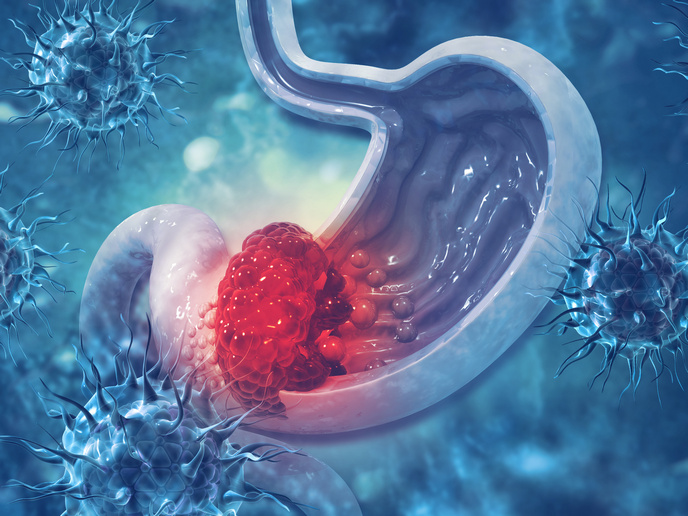AI-powered clinician to aid stomach cancer treatment
An international team of researchers has developed a reinforcement learning-based AI-powered diagnostic assistant that can tailor treatment for Helicobacter pylori, a bacterium considered to be the leading cause of stomach cancer worldwide. Supported by the EU-funded AIDA(opens in new window) project, as well as the TOGAS project funded under the EU4Health(opens in new window) programme, the system demonstrates AI’s potential to assist clinical decision-making and improve outcomes for people with gastric cancer. The vast majority of stomach cancer cases are attributable to H. pylori infection. This type of cancer is believed to develop after years of gastric atrophy, a condition in which the stomach’s lining thins, and its gland cells – which aid digestion – are lost. This loss is a key step in the progression towards stomach cancer. Since over half the globe is expected to experience H. pylori infection at some point in their lifetime, the need to take advantage of advances in AI to evaluate and improve management and treatment is clear. This is because, despite current advancements in treatment such as chemotherapy and surgery, stomach cancer still has a poor prognosis compared to other types of cancer, especially when in an advanced stage. This AI clinician has the potential to change this. By optimising therapies for early eradication of the H. pylori bacterium, it can significantly advance cancer prevention across the globe.
Learning by trial and error
The system provides patient-specific first-line treatment recommendations and determines if such AI-driven personalised treatments would improve the rate of disease eradication compared to clinician-prescribed therapies alone. To be able to do this, it uses a machine learning approach called ‘reinforcement learning’ that learns through trial and error which actions to take to maximise reward in a given state. The model is trained and internally validated on over 38 000 patients from the European Registry on Helicobacter pylori Management, a database that systematically collects data from routine clinical practice in Europe on the management of H. pylori infections. Using independent-state deep Q-learning techniques, it recommends the most effective therapies based on patient characteristics such as age, sex, country, antibiotic allergies, symptoms and other medications taken at the same time.
Stronger together
As described in the study(opens in new window) published in the journal ‘Nature Communications’, the system improved treatment success by 6 %. AI-recommended therapies were found to achieve a 94.1 % success rate compared to clinician-prescribed therapies not aligned with AI suggestions, whose rate of success was 88.1 %. As the research team emphasises in their study, the AI clinician is intended for use alongside clinicians. Rather than demonstrating the superiority of AI over clinical decision-making, it demonstrates how recommendations can be improved with AI assistance. “This study shows how AI can harness real-world clinical data to retrospectively optimise Helicobacter pylori eradication strategies - paving the way toward a new era of precision, data-driven medicine,” states the study’s co-senior author Kirill Veselkov, from AIDA project partner Imperial College London, in a news item(opens in new window) posted on the university’s news section. The AIDA (An Artificially Intelligent Diagnostic Assistant for gastric inflammation) project ends in December 2026. For more information, please see: AIDA project website(opens in new window)



